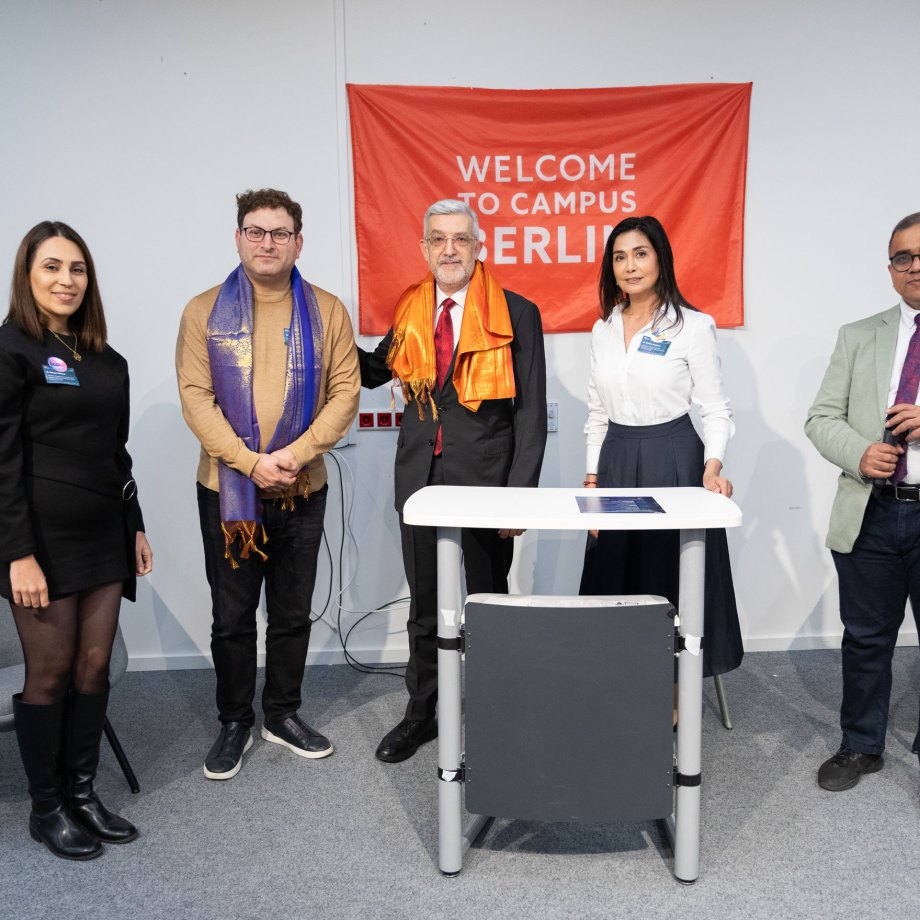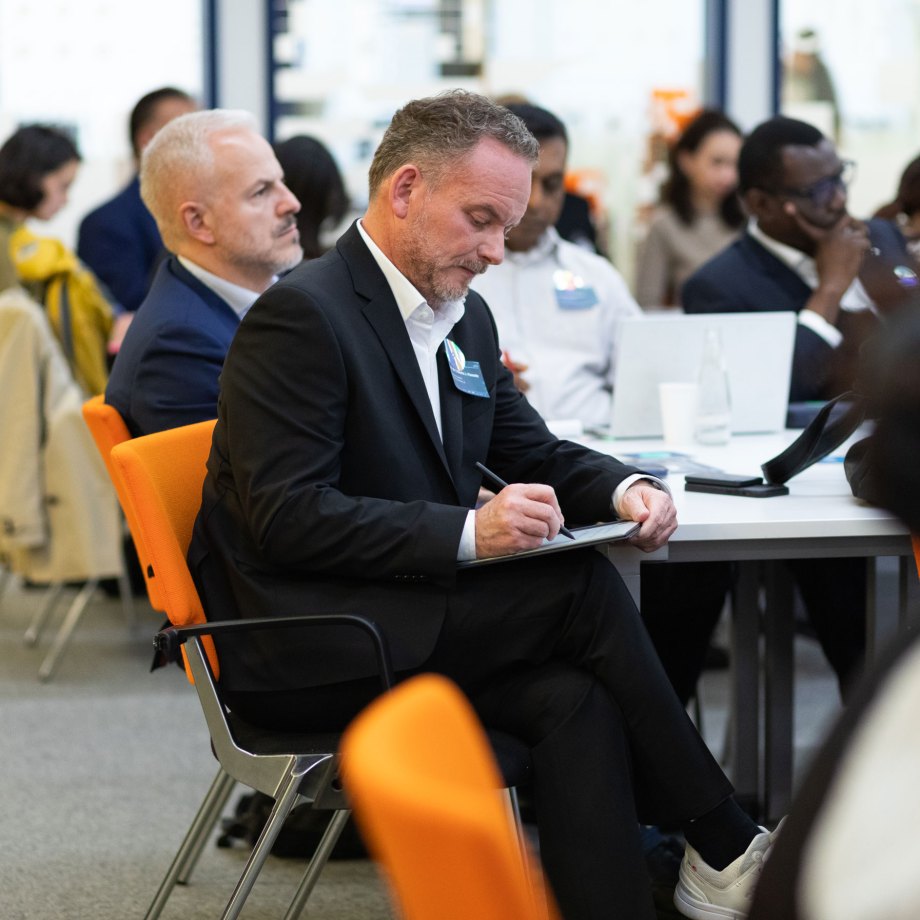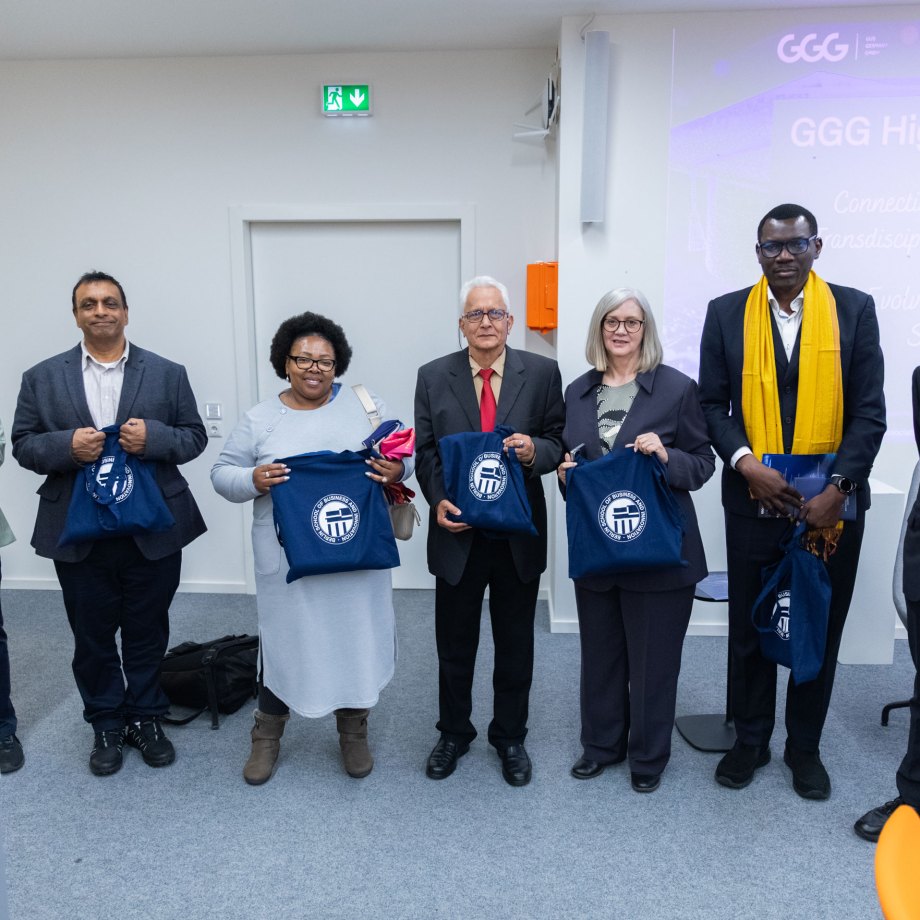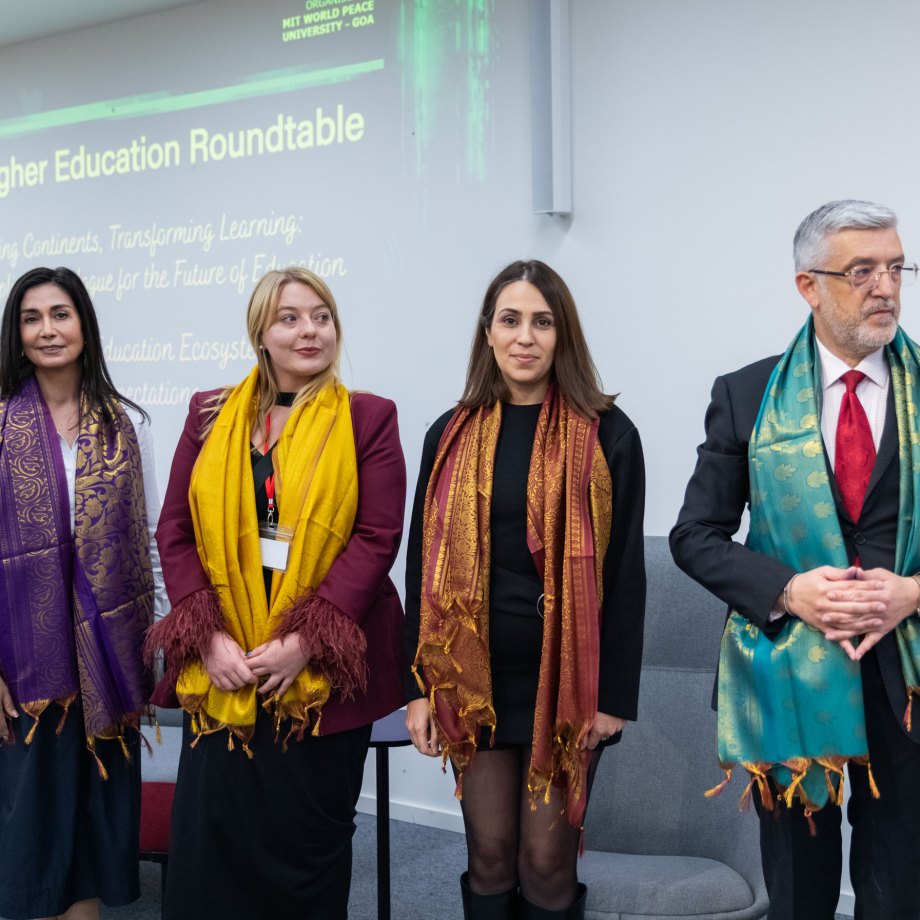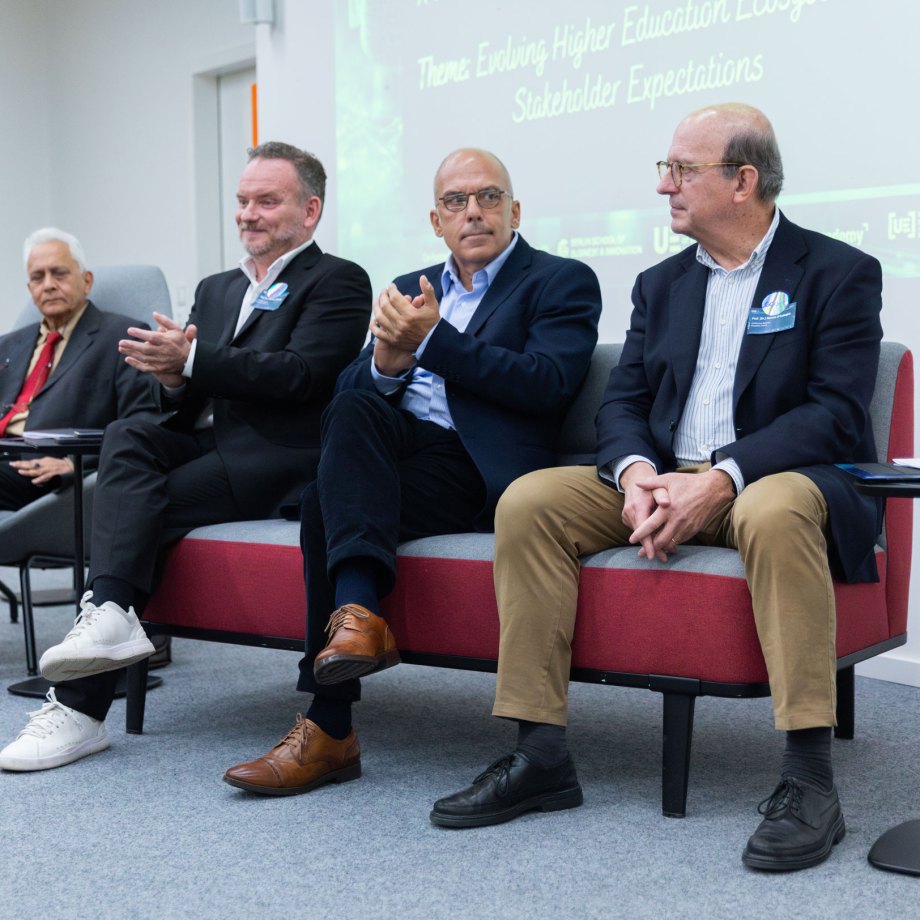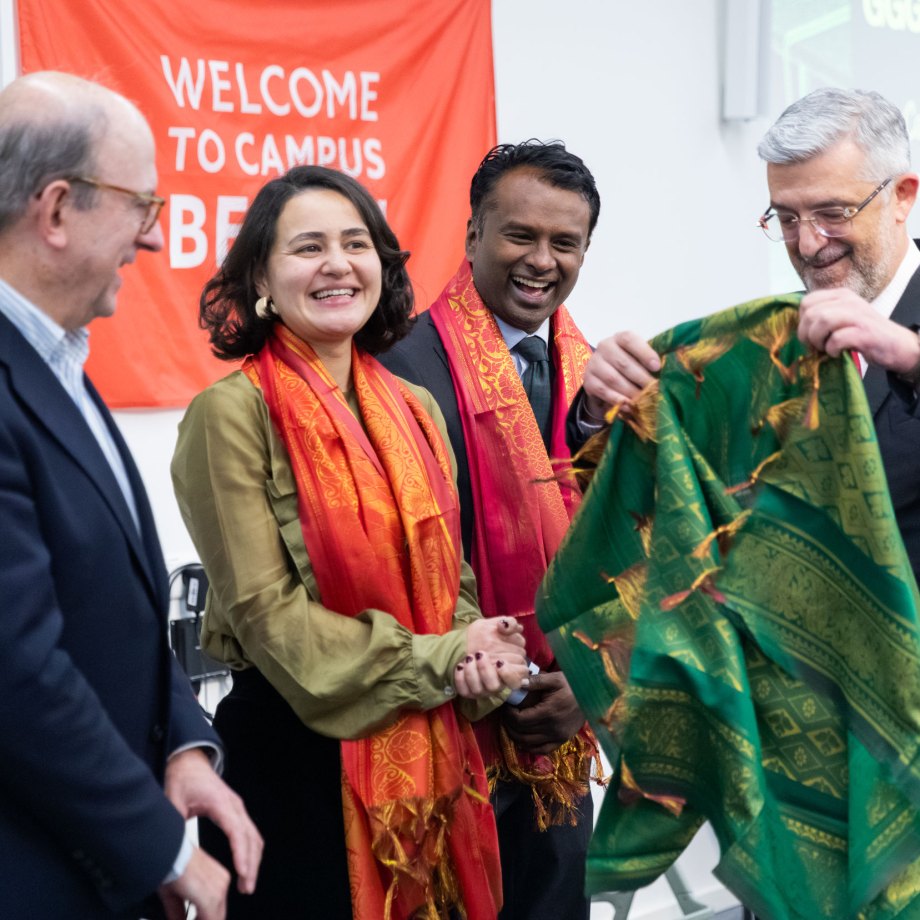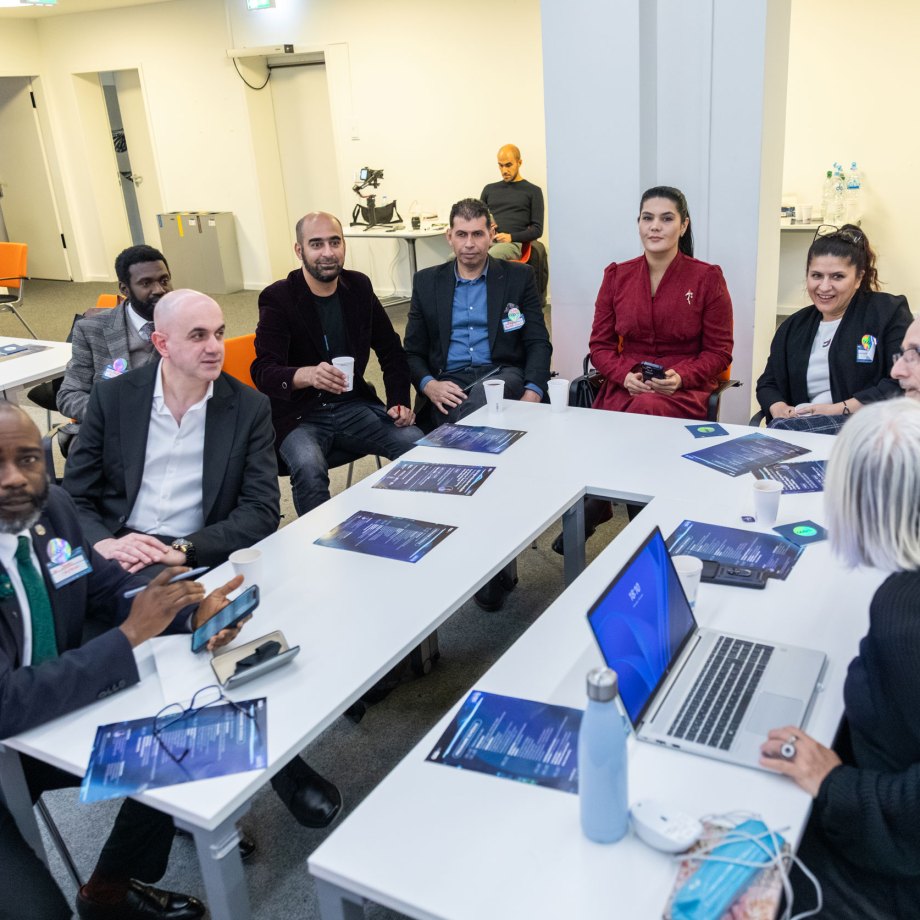GGG Higher Education Roundtable
The first GGG Higher Education Roundtable hosted the Global Envisioning Conference series on theme of “Connecting Continents, Transforming Learning: A Transdisciplinary Dialogue for Future of Education.” held on Wednesday, November 5, 2025, in Berlin, Germany, this strategic workshop focused on Evolving Higher Education Ecosystem and Stakeholder Expectations. It was organized by MIT World Peace University, Goa, and co-hosted and organized in association with Global University Systems (GGG), the University of Europe for Applied Sciences, GISMA University of Applied Sciences, HTK Academy, University of Europe Amsterdam and the University of Zululand, emphasizing a global perspective on educational governance and strategy.
The opening started with welcome address by the Roundtable Chair Prof. Dr. Kyriakos Kouveliotis (Provost, BSBI and Chief Academic Officer GGG). The session was addressed by Guests of Honours Mr. Sagi Hartov, CEO, GGG, Dr. Rahul V. Karad, Executive President, MIT World Peace University, India and Prof. Dr. Vistap Karbhari, Former President of University of Texas, Arlington. The session was introduced by the Roundtable Coordinator Prof. Dr. Shiv Kumar Tripathi.
The core discussion in the form of Opening Plenary focusing on Strategic Alignment in the Global HE Landscape was moderated by Dr. Anastasia Kiritsi through an exploration of macro-level shifts, from rapid technological change to increasing student consumerism, that necessitate a fundamental change in university operating models. The panel included key leaders: Lawyer Mr. Ernst Suganandarajah, Prof. Dr. Ramon O’Callaghan, Prof. Dr. Sascha J. Flemnitz, Dr. Georgios Alevizopoulos, Ms. Maria Nek, Prof. Dr. Dev Tiwari, Prof. Irrshad Kaseeram and Prof. Ayansola Ayandibu. The consensus of the panel focused on the urgent need for universities to enhance agility and strategically align educational outcomes with the specific expectations of global employers and the wider community.
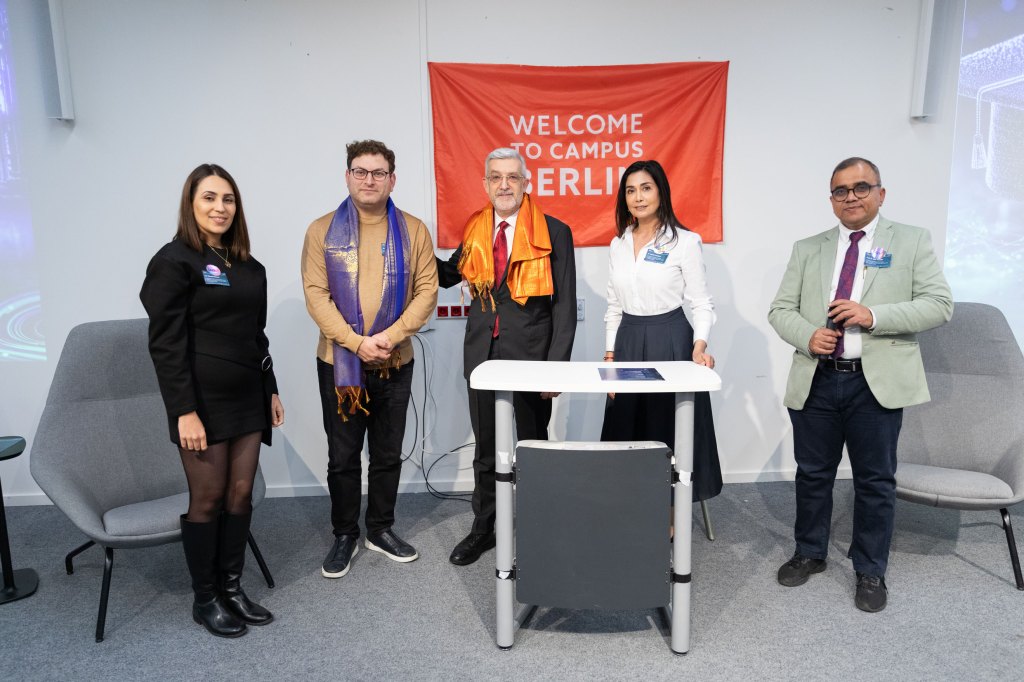
Following the main panel, the workshop utilized dedicated breakout sessions, coordinated by Dr. Niloufar Amnipour, to transition from high-level strategy to tangible operational plans. These sessions, involving focused groups of participants, likely addressed four key pillars: Digital Transformation (exploring AI-driven learning and virtual delivery models), Industry Co-creation (designing new partnership frameworks for applied research and internship opportunities), Student Experience (optimizing student support services and campus infrastructure for a diverse international cohort), and Global internationalisation Strategy (identifying high-growth regions and scalable program offerings). The goal was to generate practical recommendations for enhancing institutional agility and ensuring program relevance in a highly dynamic global higher education sector.
Main takeaways from the event include:
Focus on Agility in Program Design: Institutions must move away from fixed, multi-year curriculum cycles towards agile, rapid-response program development to meet immediate industry demand.
Digital-First Learning Models: The necessity of integrating scalable, flexible digital learning components across all modalities, including micro-credentials and hybrid formats.
Focus on Employability Skills: Explicitly embedding “soft skills” (critical thinking, communication, resilience) into the curriculum, acknowledging employer expectations are shifting beyond technical expertise.
Stronger Industry Co-creation: Higher education must transition from simple consultation to deep collaboration, co-creating curriculum and research with industry partners.
Global Institutional Collaboration: Leveraging international partnerships (like the GGG network) for shared best practices, joint degrees, and streamlined student mobility.
Data-Driven Decision Making: Utilizing business intelligence and predictive analytics to optimize everything from enrollment forecasting to curriculum performance and student success.
Student-Centric Ecosystem: Shifting the institutional focus entirely to the student journey, ensuring support, well-being, and career services are proactive and highly personalized.
Addressing the Skills Gap: Universities must take responsibility for actively closing the gap between academic theory and the practical skills required by the modern workforce.
Sustainability in Operations: Implementing environmentally and financially sustainable operational practices to ensure long-term institutional viability and demonstrate social responsibility.
Leveraging Network Strength: The GGG model proves that a multi-institutional network can provide scale, specialization, and brand strength that individual universities cannot achieve alone.
